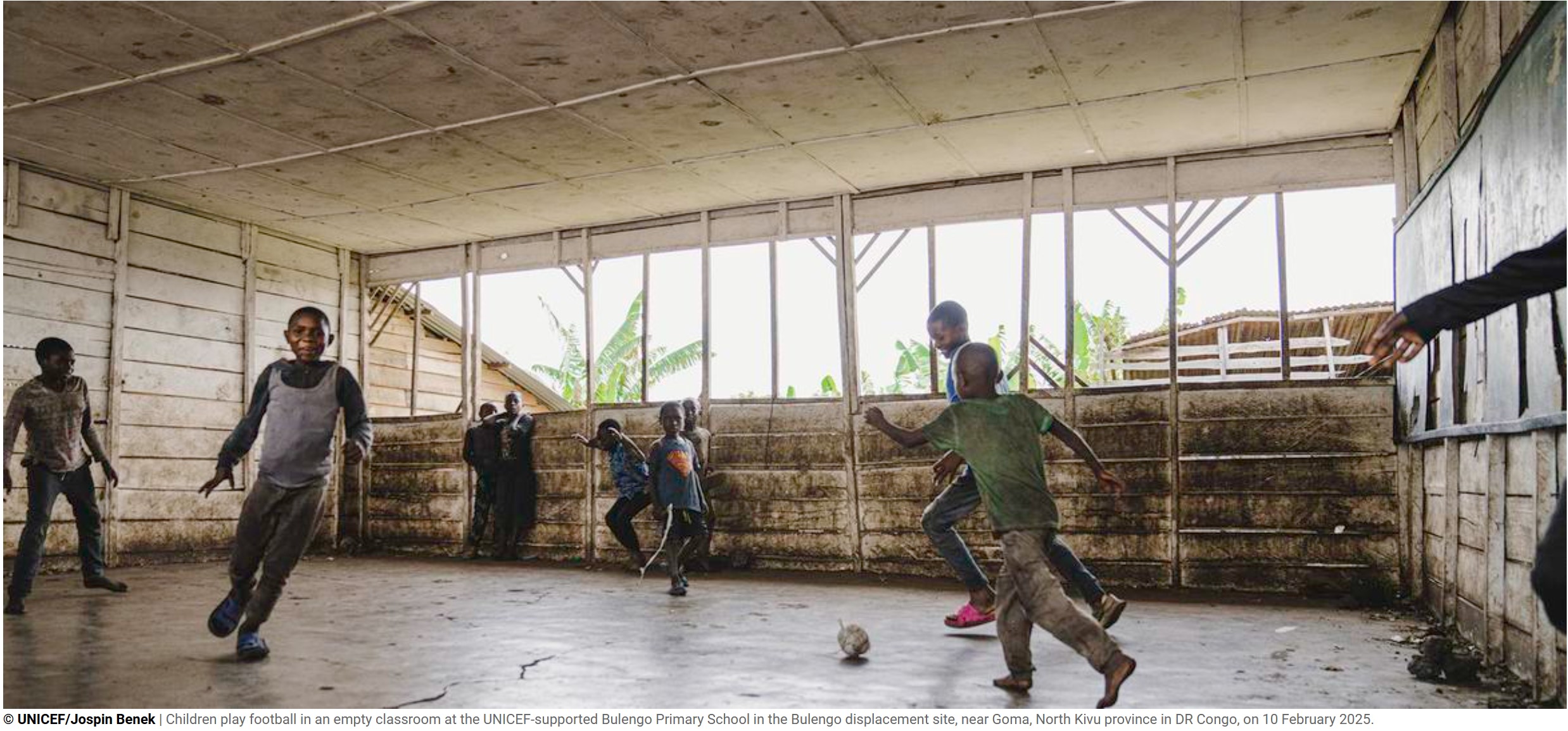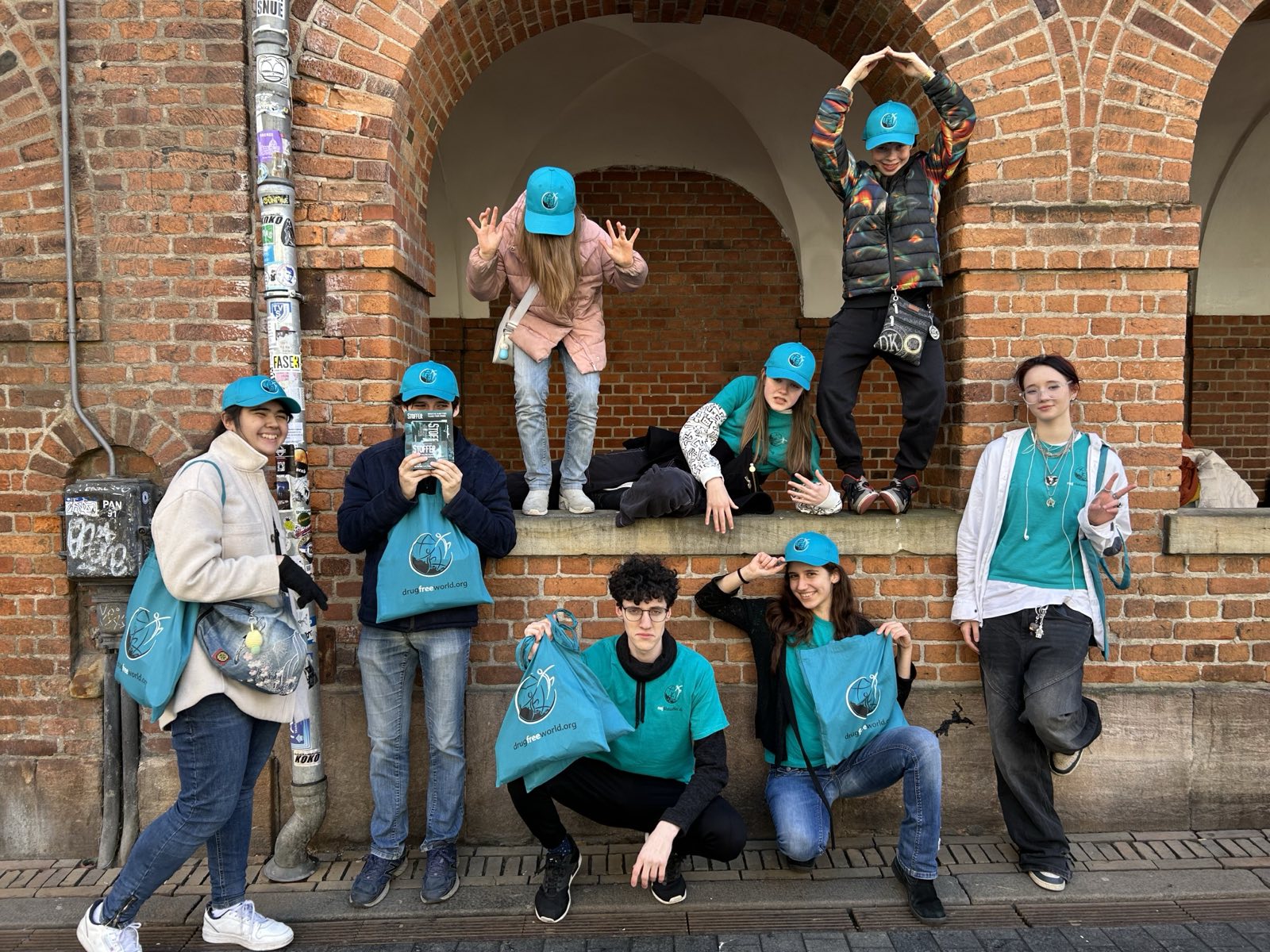Health & Society
How To Stay Healthy & Well Throughout The Year
Life can get busy at times and this may mean you start to put yourself last. However, doing so can lead to you being in a poor mood and feeling sluggish. Soon enough, you may find you’re in poor health and are ready to make some positive changes to your lifestyle.
Here you can learn tips for how to stay healthy and well throughout the year. This way you can function to the best of your ability and be more productive. You’ll also have more energy and can hopefully avoid experiencing any major wellness complications in your life.
Stay Active by Exercising
One of the best ways to remain healthy year-round is to stay active by exercising. You should focus on moving more during the day and monitoring how many steps you’re getting. Exercise can be fun if you listen to good music and choose to participate in activities you enjoy doing. It might also help to find a workout buddy so you can keep on track and keep each other motivated to exercise. There are many health benefits of staying active so be sure to put this tip at the top of your to-do list. You’ll also sleep better at night when you move more during the day. On the days you don’t feel like working out is when you should force yourself to because of how great you’ll feel when you’re done.
Take Vitamins & Supplements
Another top tip for staying healthy and well throughout the year is to consider taking vitamins and supplements. There are many upsides to doing so including boosting your immune system. For example, you can take bpc 157 which offers several health benefits including improving mood and behavior, improving cognitive health, and strengthening your immune system. If you live in a cloudy or rainy climate or where you have harsh winters then also consider taking vitamin D. This will ensure that you feel mentally well and stable even though you may not get a lot of natural sunlight. You can always do your own research or have labs done to see which vitamins would be best for you to take or which elements your body is lacking.
Visit Your Doctor & Dentist
It’s also a good idea to visit your doctor and dentist regularly throughout the year. You may be someone who often puts this off or maybe you feel okay so you avoid making appointments. However, these visits are important to maintaining good health. Visiting your doctor and dentist is the perfect time to address any concerns. It’s also wise to schedule and attend these appointments for preventative health reasons. You may be able to catch any wellness issues ahead of time before they snowball into something worse and more costly. You may not realise it but your oral health can also have an impact on your well-being too so be sure to brush and floss and see your dentist a few times per year.
Cook for Yourself at Home
If your goal is to stay well throughout the year then consider cooking for yourself at home more often. Eating out not only costs you more money but you’ll also likely consume more calories and larger portions this way. Instead, make a grocery list and do some food prep in your free time. You may also want to make meals in advance that you can stick in the freezer and pull out to eat when you are in a hurry or need a quick meal put on the table. Cooking can be fun and relaxing if you take your time as you work on brushing up on your skills. You’ll have a lot more control over what ingredients you use and how much you eat when you choose to cook for yourself.
Attend to Your Mental Health
It’s easy to look over your mental health and well-being when your schedule is hectic and you have a lot of other responsibilities. However, ideally, you should work to slow down and live more mindfully in general. This means paying close attention to the present moment and not worrying about the past or what may or may not unfold in the future. There are many ways you can nurture your mental health depending on your interests and what you’re trying to achieve. For instance, you can journal your feelings, do some extroversion and self-improvement activities, or go for walks out in nature to help you reset. Keep in mind that discipline of improving and constant learning can be tricky at first but try not to get frustrated. Give yourself a chance to slow down and reflect and then notice how much better you feel once you begin to learn and slow down more frequently. Your mental health is a vital component to your overall well-being and it will make a difference in your mood and energy levels if you are good about taking care of yourself in this manner.
Try to Break Bad Habits
You can’t keep ignoring your poor habits and expect to feel great. Sit down and think through what your habits are and which may be holding you back from being the best version of yourself. Breaking bad habits isn’t always easy but it’s worth your time to identify them and try to turn these around for the better. For you, it may be that you smoke or drink a lot of alcohol or maybe you watch too much TV. Start by noticing what these bad habits are and then come up with an action plan for successfully combating them over time. Everyone has some bad habits so keep in mind that you’re not alone and to not be too hard on yourself. The first step is admitting to them and then you can go from there.
Give Yourself A Break
If you’re someone who works a lot or has a demanding job and many household responsibilities then you may not practice self-care as often as you should. One way to ensure you stay healthy and well throughout the year is to give yourself a break every so often. Take time off work to go on a holiday or just take some days to yourself at home. Not only schedule time away from work but be more mindful daily to rest and find ways to help you recharge. For example, maybe you take a nap or get lost in a good book. You may also want to set a timer during the day so you remember to get away from your computer or desk and stretch your legs and give your mind a rest. Try to also reduce your overall screen time and how much time you spend on technology to give yourself a break away from it all.
Go to Bed at A Decent Hour
Getting enough sleep is so important for your overall well-being. Therefore, make it a point to go to bed at a decent hour each night. Instead of playing on your electronics you can read or take a warm bath to help you wind down. Configure your bedroom for optimal sleep as well by making sure the room is dark enough and set to a comfortable temperature. See if your mattress needs replacing too because a good mattress can help you improve your sleep. When you get good sleep and rest you can wake up feeling more refreshed and ready to seize the day.
Practice Self-Love
It’s also important that you not let self-destructive thinking get you down or it can start to negatively impact your health. Get in the habit of practicing self-love daily and reminding yourself of all your positive attributes. It may help to write a list that you can review often to help keep your spirits up. Practicing daily gratitude and reading positive affirmations is yet another way to improve your level of self-love. You’ll soon notice your thoughts become less negative and less emotionally charged when you begin to love and appreciate yourself.
Keep Hydrated by Drinking Enough Water
You may feel sluggish or down if you are dehydrated. Therefore, you should try to drink enough water each day to ensure you feel energised. It’s also important that you drink plenty of water if you are someone who gets a lot of exercise. If you don’t like the taste of plain water then you can always squeeze some fresh fruits or vegetables into your glass. It may also help to carry a water bottle around with you to remind yourself to fill it up and drink more water as well. Another benefit of drinking enough water is that your skin will look brighter and be healthier overall.
Conclusion
Keeping healthy and well can be tricky and challenging at times. However, it is possible to do it with the right level of motivation. These tips are a lot to take in and think about but they can help you get back on the right track. Start by picking a few that you believe you need to work on the most and build upon your successes as you implement these suggestions into your routine. The benefits of doing so will be well worth your efforts and time.
Health & Society
EU Court of Justice: Gender identity cannot depend on proof of surgical operation

Correction of data on gender identity cannot depend on proof of surgical operation. This is stated in the judgment of the EU Court of Justice in case C-247/23.
In 2014, V.P., an Iranian national, obtained refugee status in Hungary, citing his trans identity and presenting medical certificates drawn up by specialists in psychiatry and gynaecology. According to those certificates, although the person in question was born a woman, his gender identity was that of a man.
After his refugee status was recognised, the person in question was entered as a woman in the asylum register. In 2022, on the basis of the same medical certificates, V.P. requested, in particular, that authority to correct the indication of his gender in that register and the asylum granted. However, the person’s request was rejected on the grounds that V.P. did not prove that he had undergone gender reassignment surgery.
The person appealed against the refusal before the Budapest City Court. It stated that Hungarian law does not provide for a procedure for the legal recognition of trans identity.
The Court of Justice of the EU stated that, under Article 16 of the General Data Protection Regulation (GDPR), and in particular under the principle of accuracy laid down therein, the data subject has the right to obtain from the controller the rectification without undue delay of inaccurate personal data relating to him. That regulation thus gives concrete expression to the fundamental right enshrined in the Charter of Fundamental Rights of the European Union (hereinafter referred to as the “Charter”), according to which everyone has the right of access to data collected concerning him and the right to have them rectified.
In that regard, the Court of Justice of the EU noted that the accuracy and completeness of those data must be assessed in the light of the purpose for which they were collected. The CJEU considers that the Hungarian court must verify the accuracy of the data at issue in the light of the purpose for which they were collected. If the collection of those data is intended to identify the data subject, those data appear to relate to the gender identity experienced by that person and not to the gender identity assigned to him or her at birth.
In that context, the CJEU states that a Member State cannot rely on the absence of a procedure for the legal recognition of transidentity in its national law in order to prevent the exercise of the right to rectification. Indeed, although EU law does not affect the competence of the Member States in the field of civil status and the legal recognition of their gender identity, those States must comply with EU law, including the GDPR, read in the light of the Charter.
The Court of Justice of the EU concluded that the GDPR must be interpreted as requiring a national authority responsible for maintaining a public register to rectify personal data relating to the gender identity of a natural person where those data are inaccurate within the meaning of that regulation. Secondly, the Court found that, in order to exercise the right to rectification, that person may be required to provide relevant and sufficient evidence which may reasonably be required to establish the inaccuracy of those data.
However, a Member State may in no circumstances make the exercise of the right to rectification conditional on the production of evidence of gender reassignment surgery. Such a requirement affects, in particular, the essence of the right to the integrity of the person and the right to respect for private life, as set out in Articles 3 and 7 of the Charter respectively.
Furthermore, such a requirement is in any event neither necessary nor proportionate in order to ensure the reliability and consistency of a public register such as the register of asylum granted, since a medical certificate, including a preliminary psychological diagnosis, may constitute relevant and sufficient evidence in that regard.
Health & Society
DR Congo: Armed violence displaces thousands as cholera outbreak worsens

Ongoing violence in North and South Kivu in the Democratic Republic of the Congo (DRC) continues to kill, injure and displace civilians, the UN Office for the Coordination of Humanitarian Affairs (OCHA) has warned.
Intense clashes between local armed groups and M23 rebels were reported on Thursday in the town of Masisi Centre in North Kivu.
Preliminary reports from partners on the ground indicate at least two civilian fatalities and multiple injuries, with several wounded evacuated to Masisi General Hospital.
Meanwhile, many civilians remain confined to their homes due to active crossfire, intensifying fear and limited access to basic needs and services.
“The volatility of frontlines and ongoing combat have rendered comprehensive assessments impossible,” OCHA said.
Despite international support, armed groups have made significant recent gains, particularly the M23 movement, which claims to defend the interests of Congolese Tutsi – many of whom were exiled to Rwanda – and is reportedly backed by Rwandan forces. The extremist Allied Democratic Forces (ADF) also remain active in the region.
Delivering lifesaving aid
In eastern Masisi, where the security situation allows, UN partners are delivering critical aid to displaced and returning populations.
OCHA noted that since yesterday, partners have been distributing household and hygiene kits to more than 500 displaced households in Sake’s collective centre.
Furthermore, 19 of 24 water points in Sake have been rehabilitated, restoring access to safe water for over 4,000 households.
Fresh clashes in South Kivu
In South Kivu, fighting flared again on Tuesday in Fizi Territory, as local armed groups clashed with M23 fighters.
The violence struck the villages of Mulima and Lusuku – both already sheltering thousands of displaced families – prompting another wave of forced displacement.
Cholera outbreak
Meanwhile, in the southern province of Tanganyika, a rapidly escalating cholera outbreak is placing thousands at risk.
As of Wednesday, nine out of 11 health zones in the province are affected, with more than 1,450 confirmed cases and 27 deaths reported since January – a six-fold increase compared to the same period last year.
UN health partners point to severely limited access to safe water – with less than 20 per cent coverage in affected areas – and insufficient healthcare capacity to manage cases effectively.
Health & Society
Danish Youth Take Charge: A Drug-Free Future, One Shop at a Time

KINGNEWSWIRE – Press release // In the heart of Copenhagen, a group of 15 young activists—aged 10 to 20—are rewriting the narrative on youth empowerment and community health. Inspired by the principles of the Convention on the Rights of the Child and their faith in the Church of Scientology, these teens are spearheading a grassroots campaign to create a drug-free environment. Armed with educational booklets from The Truth About Drugs initiative, they’re turning local businesses into hubs of prevention, proving that age is no barrier to driving societal change.
From Booklets to Action: A Youth-Led Movement
Having started over a month, the group visits shops across Copenhagen, gaining the support of owners and shop assistants to display drug prevention materials at checkout counters. Their approach is simple but impactful: make critical information accessible to everyday customers, sparking conversations about the dangers of substance abuse. “They’re not just kids handing out flyers,” says Giulia, who guides them in this endeavor. “They are showing adults that they care about our future—and that they are taking responsibility for it.”
Their efforts align with global frameworks like the UN Convention on the Rights of the Child, which emphasizes youth participation in decisions affecting their lives. By engaging directly with businesses, the group embodies the spirit of some of UNICEF’s programs, which empowers young people to design solutions for community challenges. “These teens are bridging gaps between generations, ensuring their message resonates where it matters most” said Giulia, in charge of public affairs at the Church of Scientology in Denmark.
Tackling a Local Crisis with Global Lessons

Denmark has long grappled with youth drug use, particularly in areas like Copenhagen’s Freetown Christiania, where hash consumption reportedly remains prevalent. The group’s campaign addresses this head-on, mirroring strategies from what is done in other countries, and try to instil this to every other European country, combining education with community outreach to combat addiction before it arrives.
Their work also reflects a vision of supporting recovery and prevention, proving that empowerment starts long before crisis intervention. The program, one of the world’s largest non-state drug prevention initiatives, is fully funded by members of the Church of Scientology, inspired by L. Ron Hubbard’s research on drug prevention and rehabilitation. However, the teens emphasize the universal message of their materials: facts about drug risks, peer pressure, and making healthy choices “Our religion teaches us to serve others, and do it with factual information” says one of the participants, “this is about saving lives, not religious beliefs.”
A Model for Youth Agency Worldwide
The group’s initiative resonates with many international programs, by equipping young people to drive social change. By partnering with local businesses, this recently started Truth About Drugs youth group, is fostering a culture of collective responsibility. Their actions also echo WHO’s call for youth engagement in health advocacy, positioning them as allies in Denmark’s public health goals.
As these teens inspire shop owners and customers alike, they’re proving that meaningful youth participation isn’t a fairy tale. It’s a blueprint for building resilient communities—one booklet and one conversation at a time. “They are not waiting for permission to change the world,” says Ivan Arjona, Scientology’s representative to the European Union and the UN “They are already doing it.”
-

 Health & Society4 days ago
Health & Society4 days agoThe Art of Earthing – Grounding Yourself for Better Physical Health
-

 Health & Society5 days ago
Health & Society5 days agoNatural Sleep Solutions – Creating a Restorative Nighttime Routine
-

 Health & Society6 days ago
Health & Society6 days agoCold Showers and Beyond – Embracing Temperature Therapy for Vitality
-

 Sports5 days ago
Sports5 days agoInter: Acerbi’s renewal is already there and the clause is no longer a concern
-

 Politics2 days ago
Politics2 days agoEU Parliament Tackles Steel Industry, Fundamental Rights, and Budget Priorities in Plenary Session
-

 Sports5 days ago
Sports5 days agoNapoli-Milan, Bruscolotti warns: “Leao gave us so many sorrows”
-

 Sports2 days ago
Sports2 days agoNBA, Steph Curry and Nikola Jokic show: Memphis knockout, Minnesota no
-

 EU & the World2 days ago
EU & the World2 days agoIs Cory Booker Still Speaking? How Long His Filibuster Lasted



















